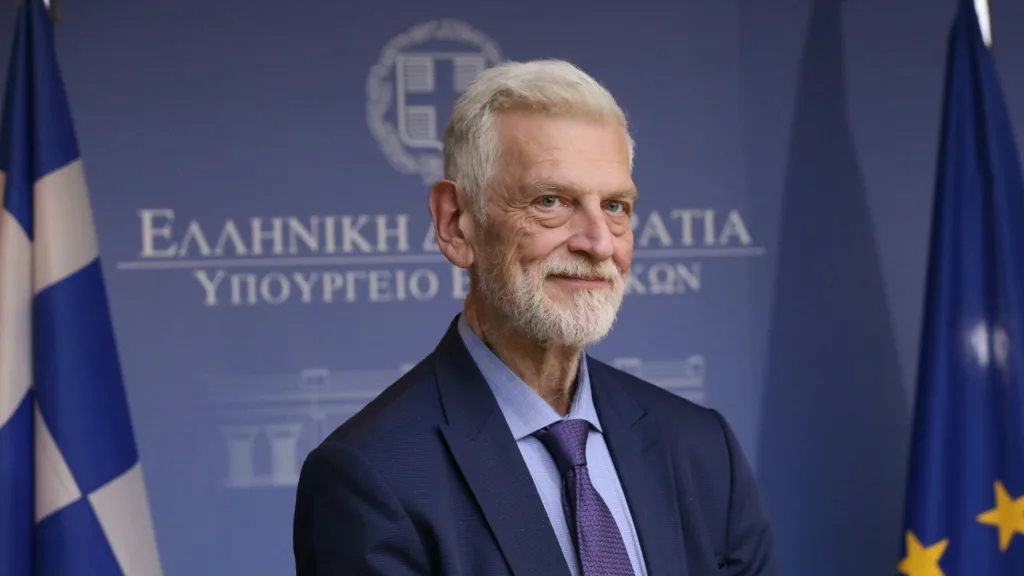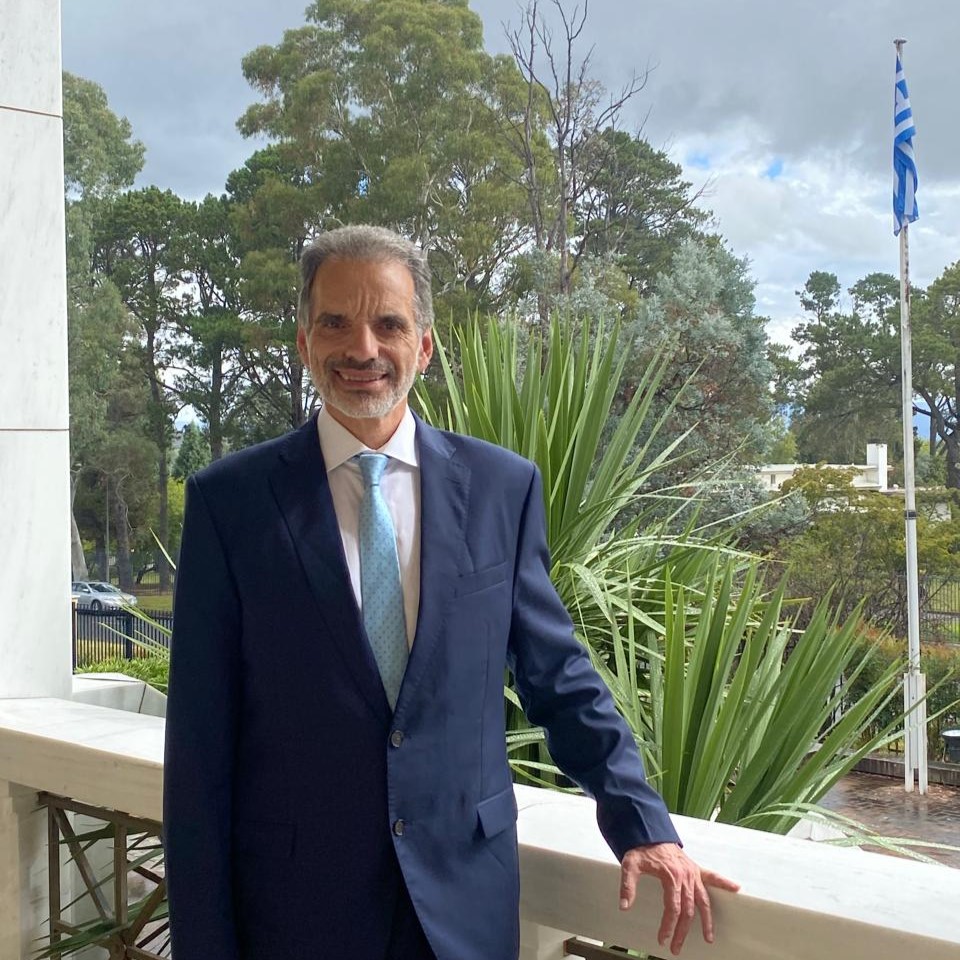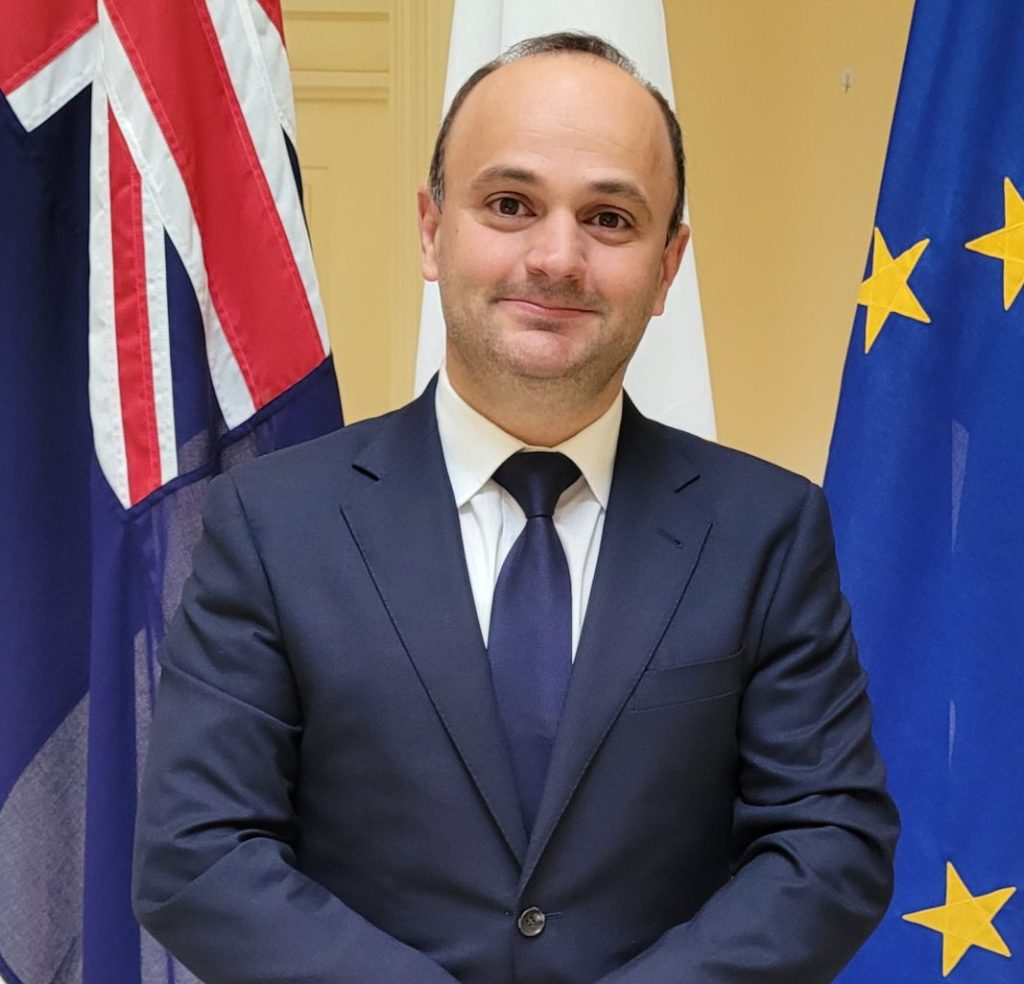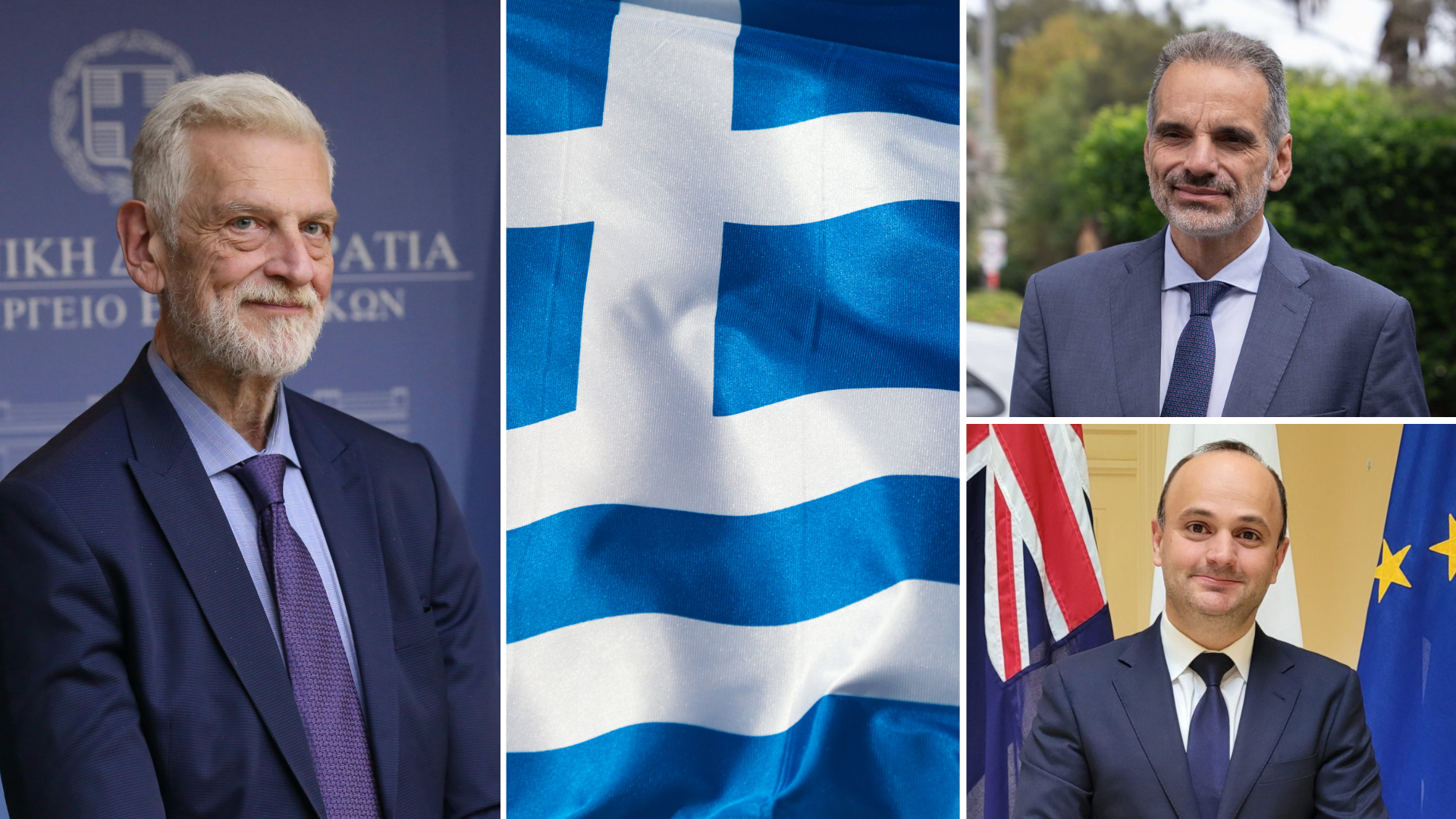Greek and Cypriot politicians and diplomats have issued messages to Australia’s Greek diaspora ahead of the OXI Day celebrations on 28 October, honouring Greece’s defiant “No” to fascism in 1940 and the enduring legacy of courage and freedom it represents.
Message by Greece’s Deputy Foreign Affairs Minister for Greeks Abroad, Ioannis Michail Loverdos

Dear compatriots,
The 28th of October constitutes a defining moment in the history of our nation; on that day, the Greek people, united, responded to the ultimatum of the would-be invader with the emblematic “OXI” (“NO”), rejecting every form of submission and choosing to stand by the side of the free peoples of the world.
The “OXI”, a symbol of courage and freedom, inspired our soldiers who fought with self-sacrifice in the mountains of Pindus, writing glorious pages of bravery and devotion in the epic of 1940. We must not forget that Greece’s victory over the forces of fascism was the first Allied victory against the Axis in the Second World War, boosting the morale of the free nations and contributing decisively to the reversal of the balance of power in Europe.
The resistance of the Greek people continued, with the same determination, during the German occupation, when, despite the sacrifices, hunger and persecution, the Greeks kept the flame of hope for freedom alive.
The epic of 1940, however, was not written only in the mountains of Pindus; it was also written in the souls of Greeks everywhere. The Greeks abroad contributed decisively to the national struggle, offering financial support, volunteers and valuable assistance to those fighting for the homeland. The diaspora once again stood by Greece selflessly, proving that Hellenism knows no geographical boundaries.
Today, as we honour the 28th of October, we must remember that national anniversaries are days of reflection and inspiration, calling upon us to consider our own stance towards the values our ancestors defended: freedom, democracy, and justice.
It is particularly important that our youth understand the meaning of the 28th of October, not as a distant date, but as a living message of courage, national self-awareness and responsibility towards the future.
The historic “OXI” must not be recorded merely as a heroic moment of national resistance, but also as a clear stance in favour of freedom, dignity and international legality. In an international environment marked by intense geopolitical turbulence and shifting balances, the anniversary of the 28th of October remains relevant, reminding us that nations which remain steadfast to their values constitute pillars of stability and bearers of hope, even amidst widespread uncertainty.
The Greece of the 21st century—dynamic, confident, and present in all international fora—continues to work constructively for the establishment of conditions of stability and cooperation at regional and international levels, with the absolute priority of safeguarding national interests and strengthening ties with Hellenism across the world.
Greek women and men,
On this day of celebration and national uplift, let us honour, with unity and pride, the ideals and sacrifices of our forebears, keeping alive the flame of Hellenism wherever its heart beats.
Long live the 28th of October! Long live our Greece!
Message by the Ambassador of Greece in Australia, Stavros Venizelos:

Dear friends, Greek women and men of Australia,
The 28th of October 1940 constitutes one of the most brilliant pages in modern Greek history and a timeless example of national unity, courage, and love for freedom. At a difficult moment for Europe, the Greeks stood tall, defending liberty and the homeland, even when faced with superior forces. The heroic “OXI” of 1940 was not merely a word – it was an act of collective dignity and devotion to the nation.
The resistance against the forces of the Axis, the epic battles in the mountains of Pindus, the sacrifices during the Occupation, the national resistance, and the courageous participation of Greeks in war fronts beyond our borders are events that continue to inspire and unite us.
For you, the Greeks of the Diaspora, these memories hold special meaning. In our hearts still live the personal stories of parents and grandparents who experienced the events of the war and the Occupation – stories passed down from generation to generation, keeping alive the flame of national identity, even so far from Greece.
After the end of the war, many Greeks who had lived through that difficult era sought a better tomorrow in Australia. Their new homeland welcomed them and offered them the foundations to create a thriving Greek community that honours its roots, preserving the language, traditions, and historical memory.
The participation of Australian soldiers (ANZACs) in many heroic battles on Greek soil, and later in the great Battle of Crete, linked the destinies of our two peoples. The common struggle laid the foundations for a long-standing friendship that continues to this day with mutual respect and appreciation.
The sacrifice of Greeks and Australians alike contributed to shaping a more peaceful and just world. Upon the ideals for which they fought, the post-war international order was built, with institutions such as the United Nations promoting peace, cooperation, and respect for international law.
Today, in a world facing new challenges, the historical memory of the 28th of October reminds us how vital it is to preserve unity, freedom, and peace.
Let us therefore honour this day with pride and gratitude. Let us keep our national memory alive and pass on to future generations the enduring value of “OXI”.
Many happy returns to all!
Message by the High Commissioner of Cyprus in Australia, Antonis Sammoutis:

Dear compatriots,
The 28th of October 1940 is a day written in golden letters in the history of Hellenism. This is because, despite the difficulties Greece faced after the Asia Minor Catastrophe — poverty and political instability, which eventually brought about the dictatorship of Metaxas — despite the first great clouds of the century’s second division beginning to gather, at that critical moment of the Italian invasion, almost as one, the Greek people thundered forth that magnificent “OXI”!
The “NO” that came from the depths of the centuries, from our sacred bond as human beings, as Greeks, as Christians, with freedom — as the purpose of our lives and as the quintessence of human existence.
The monumental effort of the Greek army, against a fully armed enemy and in harsh terrain under freezing conditions, led to the great victories that make up the epic of 1940 — an epic written in blood on the mountains of Northern Epirus and Albania. These unparalleled victories gave courage to all the other enslaved peoples and to the entire free world of the time.
Unfortunately, these victories were followed by the German invasion, the occupation and the civil war, which in essence began during the years of the national resistance. A civil war and a division whose consequences are still visible today in the polarisation that often characterises our political life — a civil conflict that, like a nightmare, awakens bitter memories no matter how many years pass.
The anniversary of OXI Day and of 1940, together with the anniversary of the Battle of Crete the following year, are the foremost national celebrations that unite us with our Allies and with Australia. Everyone knows of the fierce battles fought by the Australians and New Zealanders at our side when the Germans invaded the great island of Crete in May 1941.
Fewer, however, know that some months earlier, our Australian allies had already been positioned defensively in the mountains of Macedonia. Many even believe that if the defensive line at Vermio, Olympus and further south had been better organised, Greeks, Britons and Australians would have formed new Thermopylae, and the Germans would not have advanced so easily.
A lesser-known page of our history records that Cyprus, then under British administration, welcomed our Australian and New Zealand allies and friends in May 1941. They had arrived there, fully equipped from Egypt, to prepare the island against a possible German attack — for the Germans had already advanced into North Africa. The welcome that Cypriots gave the Australians along the road from Famagusta to Nicosia, in towns and villages alike, was triumphant, even though no battle had yet been fought. The next great battle did not, in the end, take place in Cyprus but in Egypt, at El Alamein, the following year, after our Australian friends had returned there. Many Cypriots also took part in that battle. For the first time, Cypriots from Egypt, Cyprus, Britain and Australia found themselves fighting side by side.
Cyprus was fortunate not to experience war directly and not to fall under German occupation. Nevertheless, 35,000 Cypriots — both Greek Cypriots and Turkish Cypriots — donned the British uniform and fought bravely alongside the Allies in Greece and Crete, in North Africa, France, Italy and Central Europe. Many never returned, and they lie buried in those places, in military cemeteries beside their fellow soldiers.
Dear friends,
We live in particularly turbulent times, in which the challenge to international law and the resurgence of totalitarianism once again threaten our freedom and prosperity. In such times, we must know clearly, as our Australian friends did when they came to fight and sacrifice in our homeland, where we belong — definitively and unwaveringly. And the answer to that question arises naturally from Greek history, not only modern but also ancient.
Heirs to a name of great weight — a name synonymous with democracy, freedom and humanism — we cannot but prove ourselves worthy of it, if and when we are called upon to do so again.
